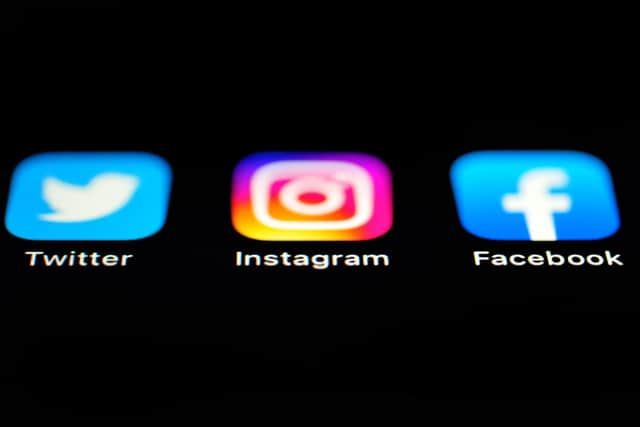Social media break ‘reduces depression’
and live on Freeview channel 276
People who took a break from platforms such as TikTok, Instagram, Twitter and Facebook for seven days reported an increased sense of wellbeing, a study by the University of Bath found.
Researchers split a sample of 154 people aged 18 to 72 into two groups – one of which was banned from social media while the other was not.
Advertisement
Hide AdAdvertisement
Hide AdOn average, participants used social media for eight hours a week.


Participants were quizzed on their baseline levels of anxiety and depression, and their sense of wellbeing, using three recognised tests.
They were asked to rate their agreement with statements such as “I’ve been feeling optimistic about the future” and “I’ve been thinking clearly” to measure wellbeing.
To measure depression, participants were asked questions including “how often during the past two weeks were you bothered by little interest or pleasure in doing things”.
Advertisement
Hide AdAdvertisement
Hide AdAnxiety was monitored using the General Anxiety Disorder Scale, which asks how often a person is bothered by feeling nervous or on edge, or an inability to stop worrying.
Those who took a one-week break from social media saw their wellbeing climb from an average of 46 to 55.93 on The Warwick-Edinburgh Mental Well-being Scale.
Levels of depression in this group dropped from 7.46 to 4.84 on the Patient Health Questionnaire-8 while anxiety fell from 6.92 to 5.94 on the scale.
Lead author Dr Jeff Lambert, of the university’s Department for Health, said the changes represented a moderate improvement to depression and wellbeing, and a small improvement in anxiety.
Advertisement
Hide AdAdvertisement
Hide AdDr Lambert said: “Many of our participants reported positive effects from being off social media with improved mood and less anxiety overall.
“This suggests that even just a small break can have an impact.”
The number of UK adults using social media has increased from 45% in 2011 to 71% in 2021, and has hit 97% in people aged 16 to 44, the study said.
“Scrolling” through content is the most common activity that social media users perform.
Advertisement
Hide AdAdvertisement
Hide AdThe research findings support previous research in both the US and UK linking regular social media use with higher rates of depression and anxiety.
But it is not established whether social media use leads to mental health problems, the report said, or whether pre-existing feelings of low self-worth drives people online as a means of validation.